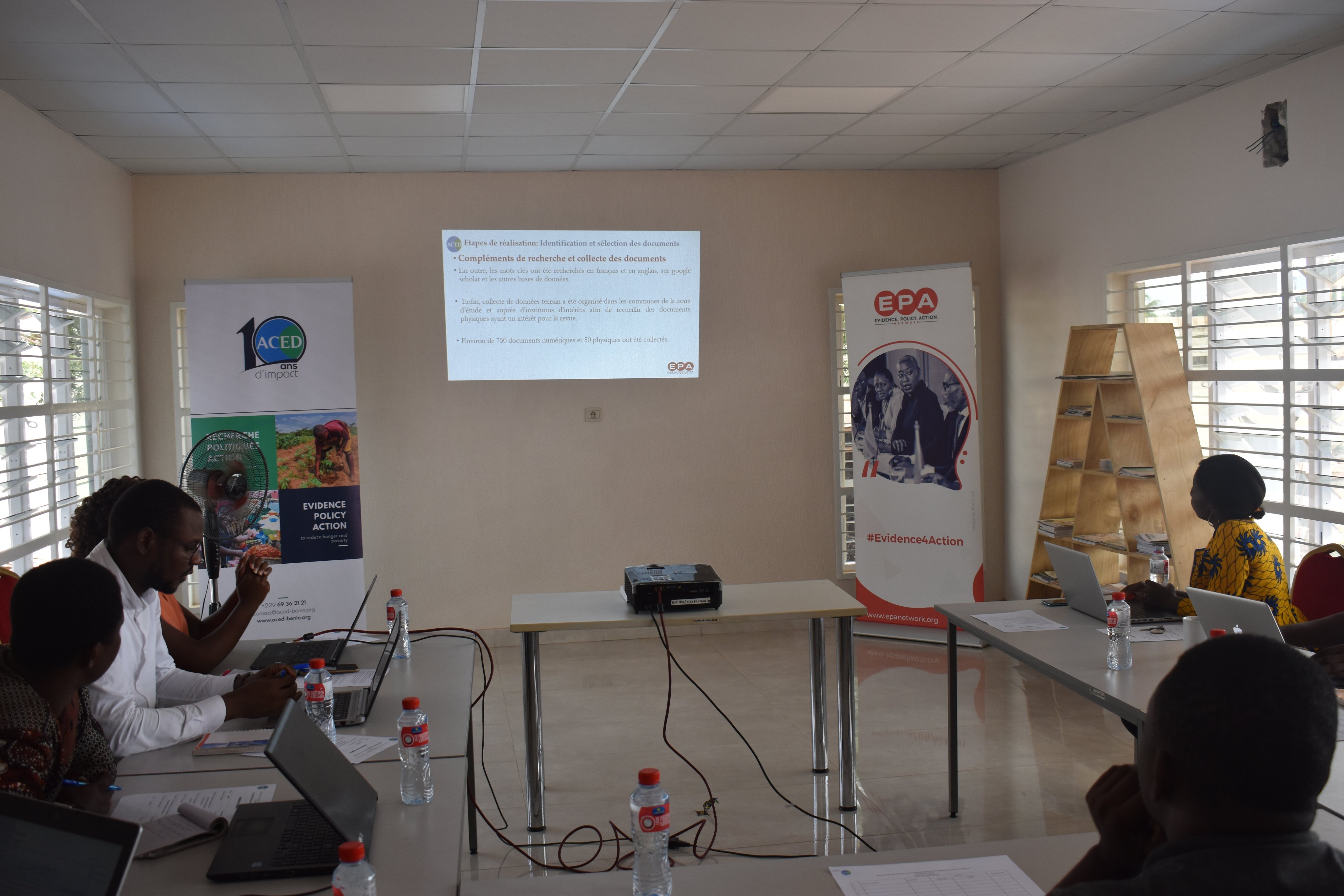
When we started working with policymakers in Benin to improve evidence use in decision making, one of our main hypotheses was that evidence use was low because decision makers did not have the capacity for evidence-informed policymaking. Consequently, we planned capacity building activities such as training and equipment provision. Policymakers were trained on how to access, interpret, and use evidence in the policymaking cycle. In addition, where it was necessary, equipment such as computers and internet devices were offered to improve access to research findings online. So, we have put more effort into capacity building (60%) than supporting evidence use (40%). Our reasoning was that once the policymakers have the capacity to access and use evidence, they would apply those capacities in their work.
However, we realized later that although capacity building is important, it may not be the most important reason for low systematic evidence use. In fact, we noticed that even when capacities are built, policymakers are not able to systematically use evidence because, most of the time, they fail to identify the opportunities for routine evidence use. Therefore, we decided to flip our approach to focus more on evidence use (60%) than on capacity building (40%).
One implication is that we devote more time and resources to identify and understand opportunities for routine evidence use and build capacities on those opportunities. Two types of opportunities were considered: opportunities for strategic use in defining development plans, strategies, budgets, projects, and programs; and opportunities for routine (daily) use. Specific requests were collected from policymakers to better understand their evidence needs. For example, the municipalities of So-ava and Aguégués requested an evidence-based action plan to reduce the negative impact of water hyacinth proliferation on the environment and the local economy. Other municipalities identified the need for evidence on the critical success/failure factors of youth agricultural entrepreneurship.
Therefore, our capacity building activities will take an experiential learning approach through which policymakers will be trained on concrete evidence use cases. They will be trained to identify evidence needs and opportunities, access the relevant evidence, and use it to support decisions. We hope that the more we work with them on real opportunities, the more they will develop the habit of evidence use. Our helpdesk will play a critical role in this strategic shift.
The views expressed in published blog posts, as well as any errors or omissions, are the sole responsibility of the author/s and do not represent the views of the Africa Evidence Network, its secretariat, advisory or reference groups, or its funders; nor does it imply endorsement by the afore-mentioned parties.